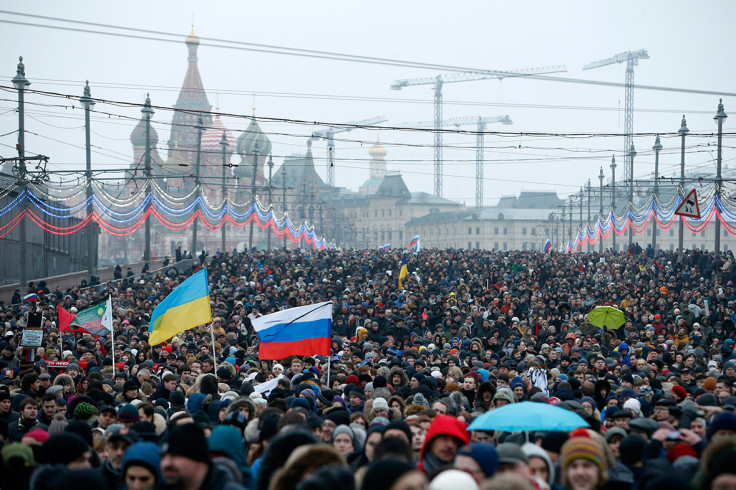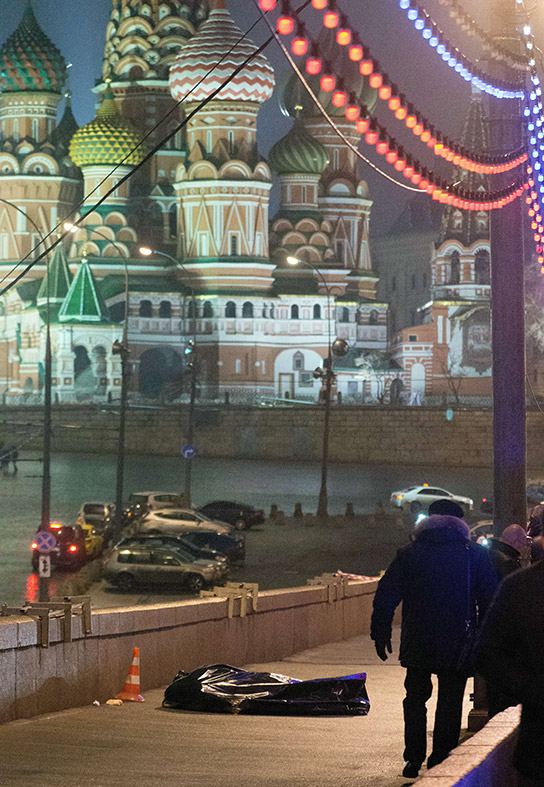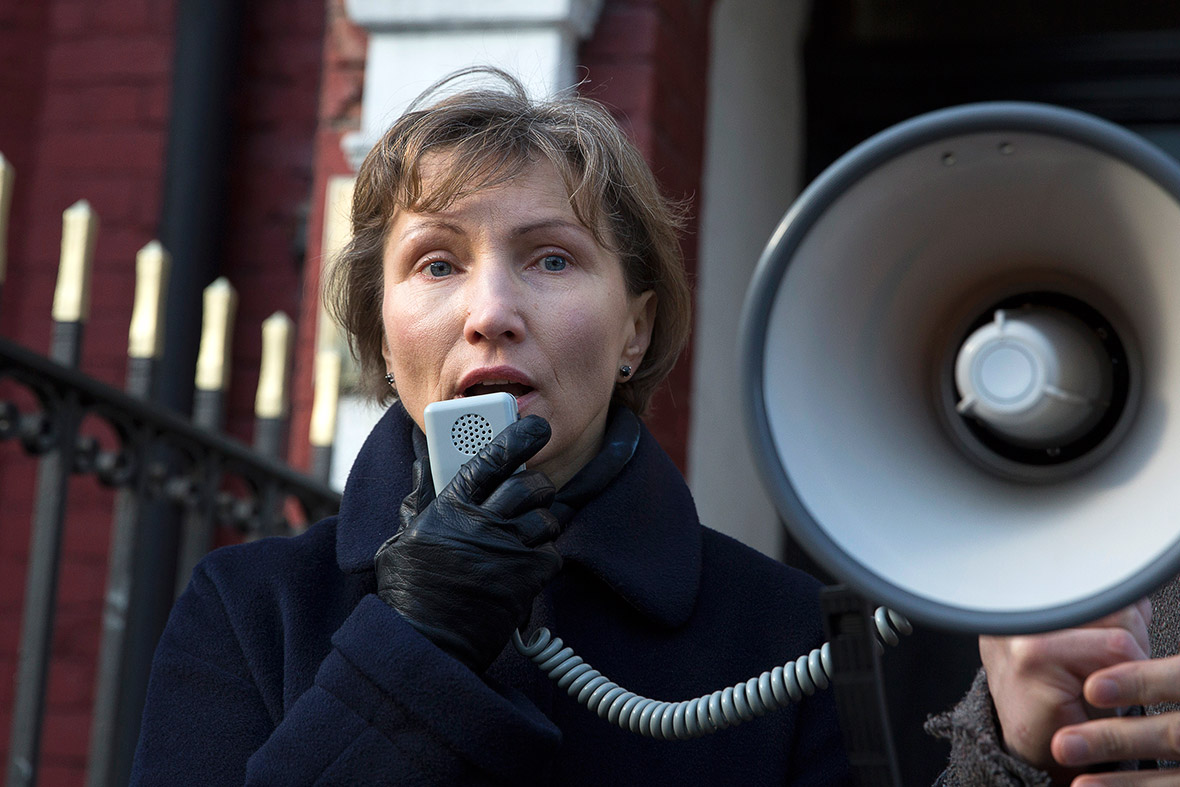Boris Nemtsov murder: Protesters march past the Kremlin in Moscow calling for a Russia without Putin
Tens of thousands of Russians marched through Moscow, carrying banners declaring "I am not afraid" and chanting "Russia without Putin" in memory of murdered Kremlin critic Boris Nemtsov.

The opposition politician and former deputy prime minister was shot dead while walking home from a restaurant with his girlfriend on Friday 27 February.
Russian police said the security cameras filming the Moscow bridge were not working at the time of the killing.
A TV station controlled by the Moscow city government broadcast a grainy CCTV video that it said shows Nemtsov and his date shortly before the killing.
The station, which superimposed its own time code on the footage, circled figures that it said were Nemtsov and the woman walking across the bridge on a rainy night. The moment of Nemtsov's assassination is not visible on camera, as a snowplough moved directly into the line of vision.
The station then circled what it said was the suspected killer jumping into a passing car. Pro-Kremlin newspaper Kommersant reports that Nemtsov's girlfriend, Ukrainian model Anna Duritskaya, was in too much shock to recall the make of the car used by the murderers to flee the scene.


His supporters have blamed the authorities. The authorities have suggested the opposition itself may have been behind his shooting in an attempt to create a martyr and unite the fractured movement.
While the killing of Nemtsov has shaken the opposition, which sees the Kremlin as responsible, it is unclear whether his death will be enough to invigorate the beleaguered movement. Despite the Ukraine conflict and Russia's economic crisis, support for President Vladimir Putin is above 80%.
Since mass anti-Putin protests brought hundreds of thousands to the streets of Moscow in 2011 and 2012, Putin has marginalised and intimidated his political opponents, jailing some, driving others into exile, and ramping up fines and potential jail time for those detained at protests.
Nemtsov, a fighter against corruption who said he feared Putin may want him dead, had hoped to start the opposition's revival with a march he had been planning for Sunday (1 March) against Putin's economic policies and Russia's role in east Ukraine.
The Kremlin had identified Nemtsov as among the leaders of a "fifth column", painting him and other opposition figures as traitors in the service of the West.
At the time of his death, Nemtsov was working on a report that he believed proved that Russian troops were fighting alongside the separatists in Ukraine, despite the official denials.









The widow of murdered Russian spy Alexander Litvinenko thinks the Russian government may have been involved in the murder Nemtsov.
Marina Litvinenko told BBC Radio she thinks Nemtsov's murder seems to have been the Russian government's way of silencing critics of President Putin, but offered no proof. She said the Russian government has become particularly aggressive since the Ukraine crisis began. She called Nemtsov's death "absolutely devastating".
Protesters rallied in New York near the Russian permanent mission to the United Nations despite fear of reprisals to themselves or family members back in Russia.
Demonstrators, most of them of Russian or Ukrainian origin, held photographs of the slain opposition leader. Some carried signs that read "Putin Plague of 21st Century" and "Stop Dictator Putin - Stop Murderers".


Nemtsov's funeral is due to be held on Tuesday 3 March in Moscow.
© Copyright IBTimes 2025. All rights reserved.






















